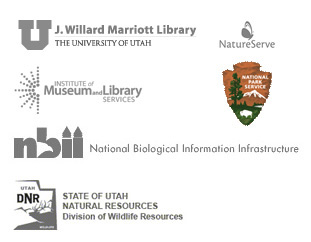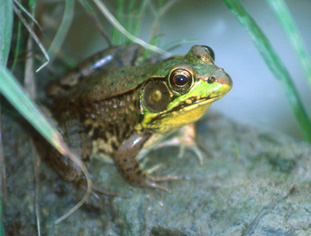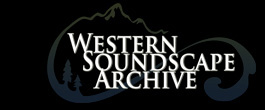Supporters and Collaborators


About Us
The Western Soundscape Archive (WSA) recognizes the vital connection between places and their soundscapes and features audio recordings of animals and environments throughout the western United States. Begun in November of 2007, the archive is housed at the University of Utah's J. Willard Marriott Library and features recordings contributed by volunteers, state and federal agencies, and conservation groups. The website continues to grow and currently includes representative sounds of more than 570 different Western bird species, all of the region's frogs and toads, dozens of reptiles and more than 100 different types of mammals. You will also find many lush, ambient recordings. The archive is supported in part by a major grant from the Institute of Museum and Library Services (IMLS).Geographic Focus
The project's geographic focus includes eleven contiguous western states - Arizona, California, Colorado, Idaho, Montana, Nevada, New Mexico, Oregon, Utah, Washington and Wyoming - as well as baseline sound monitoring in the Arctic National Wildlife Refuge in Alaska. These geographic boundaries were chosen to coincide with existing maps and data gathered by state and federal organizations. The Arctic National Wildlife Refuge is included to incorporate 60 hours of recordings made on the refuge in June of 2006 by an expedition funded in part by the University of Utah.
Types of Recordings
The WSA typically features three types of recordings: those of individual species, ambient soundscapes and interviews.
Individual "species cuts" are often relatively short recordings that are commonly used for species identification and call analysis. In most cases, the WSA focuses on terrestrial vertebrates, including amphibians, birds, mammals and reptiles.
Ambient recordings, or "soundscapes" are usually longer recordings - up to an hour or more - that feature all of an area's sonic components together in concert. The National Park Service defines soundscape as "the total acoustic environment of an area."
Interviews with scientists and other experts are included to give added context to the sounds, and will occasionally be heard on radio broadcasts and podcasts.
Educators
Use Western Soundscape Archive in the classroom.
Featured Sounds
Hear selections from the archive
Project Overview (2011)
Download PDF



